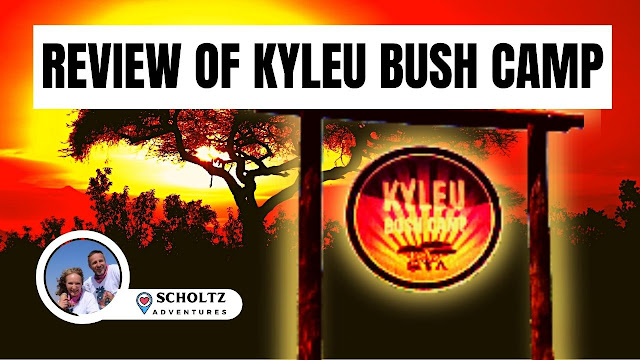Why I wrote a book
When someone asks me to elaborate upon why I am qualified to do something, my accountant brain immediately starts processing (I know, I know, Mrs. Analysis Paralysis). My first thoughts typically go to the more obvious stuff, such as qualifications and certificates. Should I assess that I fall short in the formal qualification category I resort to whether I have any experience.
I went through this process when I was
asked to answer the question why I am qualified to write this particular book. Initially,
post my assessment, I concluded that I had neither the qualifications nor the
experience, I felt very unsure of myself.
'What on earth did I think I was doing? Why did I agree to do this and what
could I possibly put on paper to convince someone that I can do this?’ I
wondered quietly.
Nevertheless, I diligently sat in front of my
computer and cranked out a few efforts. Ugh, none of those attempts resonated
with me…
My first draft sounded idiotic – Not even I
believed what I had written. My second draft was marginally better, but not
much. The third draft would not flow properly. By that stage, my brain felt as
if it was short-circuiting, so I closed my laptop in disgust and went for a run
instead. I was hopeful that some fresh air would help me get my thoughts in
order.
The run helped and I realised that
since I was inclined to be overly analytical and typically very critical of
myself, I would probably end up ditching most of my drafts if I kept concentrating
on why I was qualified to write this book. I decided to focus on why I wanted
to write this book, why I wanted to share my story with the world. I also realised
that I had both the qualifications and the experience, albeit not of the typical
kind.
I confirmed to myself that there was no one
better qualified to write my story than me. I lived through each beautiful,
painful, crazy and fantastic moment.
Initially I thought nothing of how the story
unfolded. I mean, life happens and one deals with it as best as one can. The
first couple of times that someone said to me 'Wow that is so inspirational', I felt embarrassed and brushed the
comment off. I did not feel that I had done anything particularly special;
people go through traumatic experiences all the time. I survived, I got through
it. No, it wasn’t easy, but I didn’t see that I had much choice in the matter. To
my mind, anyone else would have done the same thing. However, the comments kept
on coming, and eventually I paid a bit more attention to what was being said. Perhaps,
it was not for me to decide whether the story was inspirational. Perhaps there
were lessons and experience that I could share with others.
Maybe, just maybe I could make a
difference.
The writing part, hmmm. Well, let’s just say that
I never fancied myself a writer. Wracking my brain to think of what experience
I had in this department, it eventually dawned upon me, I realised that perhaps
I had more experience than I initially thought.
Where did the experience come from?
I spent 11 years of my working career at a large
audit firm, a significant portion of which was spent drafting factual finding
reports. The way one drafts a factual finding report is, well, factual. There
is no room for emotion; the writing style is abrupt and to the point - no mess
no fuss. The style is the complete antithesis of the beautiful story telling
that some authors seem to generate so effortlessly.
The many hours of (occasionally torturous) report
writing taught me to clearly articulate and document what happened. I was
trained to separate fact from emotion. To identify and explain lessons learned
in a way that most people will understand. I tried to put this skill to good use
in documenting my own story.
Another way that I have recorded stories over the
years is though my love of photography. I take great pleasure in capturing
photographs that portray the emotion of a moment, one great picture can convey a
powerful story. I take the trouble to lug the camera along on most adventures,
capturing highlights and occasions such as birthdays, weddings, holidays, running
events and parties. My family and friends have become accustomed, and mostly
accommodating, to my ‘stop, we need to take a photo’ requests.
At the end of each year, I sift through the hundreds,
sometimes thousands of photographs, picking out the photos that best capture
the atmosphere and general emotion of the various occasions. Using the selected
photos, I design and print a photobook to record the highlights of each
calendar year.
Photography has taught me how to see things from
a different angle; and has helped me to focus on positive moments. Another
skill that I put to good use in the writing of my manuscript.
In my own weird way, I have been documenting
stories for most of my adult life.
Why did I want to do this?
I endeavoured to convey what I learnt from a
couple of life altering events that had a profound impact on me, my family,
friends and others. One of those life events was when I fell ill in 2015. According
to the doctors, I almost did not make it (in a coma at the time, I fortunately
do not recall this dire prognosis). The illness happened on us without warning
- it was sudden, swift and extremely scary. One moment my husband and I were
having fun on a camping holiday and the next my family was suited up in blue Smurf
like hospital suits, wearing masks and visiting me in ICU.
I had always prided myself on being fairly
healthy, strong and independent. Waking up in a hospital bed and being almost
completely dependent upon others to assist me with basic functions such as eating
and going to the toilet was a humbling process. I detested being dependent, vulnerable
and helpless.
My illness impressed upon me how fragile life is.
One’s circumstances can change without warning and in an instant. I realised
how important it is to enjoy the time that one was granted on this earth.
Whilst in hospital, I made a conscious decision
that I would do whatever it took to make a full recovery, I committed to prove the
many naysayers (including some of the specialist doctors) wrong. I hated being
labelled and in particular did not enjoy the prognosis of the doctors - along
the lines of ‘will never be 100% again’.
Embarking on my recovery process with a single, focused
goal helped me to overcome my inherent fear of failure. I refused to consider
any alternative other than success. At the time, I naively measured success as me
returning to the way I was before I took ill. Little did I realise that the
outcome of the process would result in my becoming a more confident person with
an addiction to endurance running. In my wildest dreams, I did not fathom that
I would successfully complete an ultramarathon. I also never imagined that I
would become a far more empathetic and compassionate person, and a better
leader (both in business and in my private life).
I have come to appreciate how much stronger my
experiences have made me - both mentally and physically. I am not the person I
was before I was ill, this is the new me. This is ‘the me’ that I choose to be.
I have a newfound appreciation for what I am capable of doing, particularly
the enormous power of the mind. I more fully appreciate that the only
limitations are those that one places on oneself.
Sharing the good stuff
The world is fraught with negativity; switch the
TV on or open up social media and you will probably be bombarded with stories of
killings, corruption, rape, murder and generally depressing stories.
I believe that we need more stories of hope. Stories
that help us to maintain a positive outlook on life, relatable and believable stories.
My hope is that there will be aspects in my book that will resonate with others,
perhaps those who are struggling with their own challenges. My story includes
lessons I have learned from endurance running, which I have successfully
applied to my own life. If I make a difference in just one person's world by sharing my adventure, then the my book writing roller-coaster ride would have been worth it.
‘If you never
try, you will never know’ – Ben Francis


.jpg)

Comments
Post a Comment